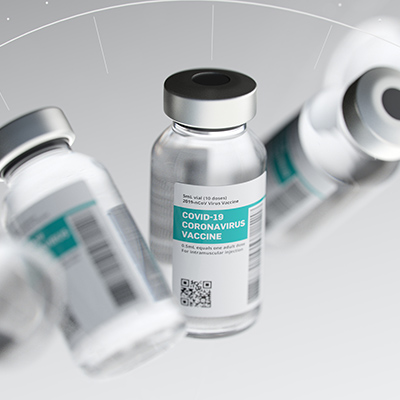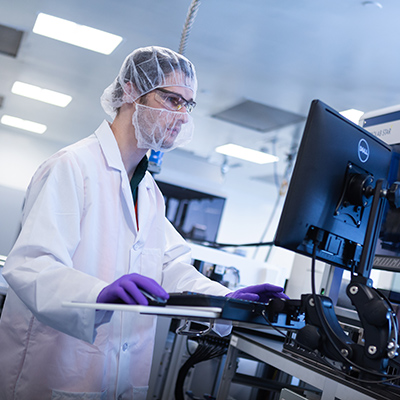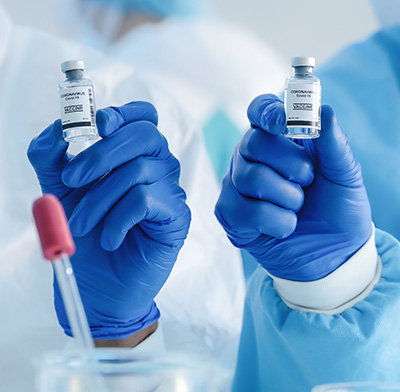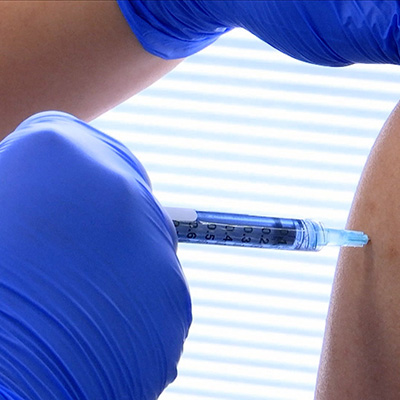August 13, 2020 -- Sharing knowledge between competitors will be key for establishing the manufacturing capacity needed to produce billions of COVID-19 vaccines in coming months. Such collaboration could change the way that innovation and competition are viewed in the biopharmaceutical industry, according to a policy forum published in Science on August 13.
As COVID-19 vaccine development crushes previous timelines, the industry is now turning toward the next step of large-scale manufacturing. In order to meet the grueling deadlines that are anticipated, companies are establishing manufacturing capacity "at risk," before products receive any regulatory approvals.
These billion-dollar investments not only require physical capacity but also access to knowledge. Add to this the fact that COVID-19 vaccine development is happening in a massively parallel fashion, and it could be a recipe for disaster.
Who knows what's going on?
The biopharmaceutical industry is notorious for being veiled in secrecy when it comes to methods, know-how, and technologies. Traditionally, manufacturing information secrecy has been considered necessary due to a combination of tight regulatory control and complex, idiosyncratic manufacturing methods.
But considering the public health imperative of the COVID-19 pandemic, knowledge transfer will be essential as firms developing vaccines will need to provide manufacturing information with other firms to make products in large quantities. A recent example of the old way of doing business occurred when Inovio claimed in a June court filing that its own experimental vaccine was being held "hostage" by a contract manufacturer that refused to share manufacturing details.
But the authors of the Science policy forum are encouraged by a recent U.S. Department of Justice ruling that granted a group of six biopharmaceutical companies (Eli Lilly, AbCellera Biologics, Amgen, AstraZeneca, Genentech, and GlaxoSmithKline (GSK)) permission under antitrust laws to exchange "technical information" on each other's manufacturing processes and platforms regarding COVID-19 monoclonal antibodies treatments.
The authors noted that the U.S. government is supporting this type of rapid information exchange and hopes that it will create a foundation with fewer siloes, improved standardization, and less secrecy over manufacturing in the future.
What's at stake?
Relevant information for quick and effective scale-up must be readily available for the production of COVID-19 vaccines. Moreover, firm-specific manufacturing knowledge, as well as other types of trade secrets, such as cell lines and production software, could be beneficial to the overarching biologics manufacturing ecosystem.
Among established platforms, knowledge transfer could promote standardization of best practices, while newer technologies (e.g., messenger RNA vaccine platforms) could benefit from greater background or case-specific knowledge.
Some firms have shown a willingness to embrace this idea. For example, Sanofi and GSK are collaborating on a joint vaccine that will require some technology transfer for the production of underlying vaccine elements.
However, the authors warned that knowledge transfer is not trivial. Tacit knowledge -- context-specific, based on experience -- is extensively codified (arranged into rules) due to the regulatory approval process.
Who can create change?
Several entities are situated to facilitate knowledge transfer by providing the right incentives or by providing an infrastructure that promotes it. The authors stated that this will be a largely international endeavor, as the virus knows no borders.
International organizations and national governments seem to be the best candidates for the job. The World Health Organization has supported the idea of a COVID-19 intellectual property pool, which would include provisions related to nonpatent knowledge transfer. Regional organizations, like the European Union, or nongovernmental organizations, like the Coalition for Epidemic Preparedness Innovations, may also have influence over the transfer of knowledge.
The U.S. government through Operation Warp Speed is providing huge amounts of funding to secure future supply of various vaccine candidates (viral vector-based: AstraZeneca, Johnson & Johnson, Sanofi/GSK; RNA-based: Moderna, Pfizer; protein subunit: Novavax). To achieve the required capacity, transfer of manufacturing know-how across firms will have to occur. The U.S. government has already invested in a contract manufacturing firm, Emergent Biosolutions, to reach this end goal.
Broad implications on the industry
Sharing of manufacturing information could drive more robust sharing of information more generally in the biopharmaceutical industry. As opposed to relying on secrecy to limit competition, firms could share basic information about manufacturing processes and rely on increased innovation, flexibility, and quality to be the main factors of competition.
COVID-19 could catalyze the industry to move toward a high-information, high-innovation environment of manufacturing and overcome the challenge of the free-rider dilemma, in which those who benefit from resources do not adequately pay for them. The authors noted that the most important end goal is to make high-quality COVID-19 vaccines available as quickly and broadly as possible, and that sharing information could promote solidarity and spur innovation along the way.
Copyright © 2020 scienceboard.net










